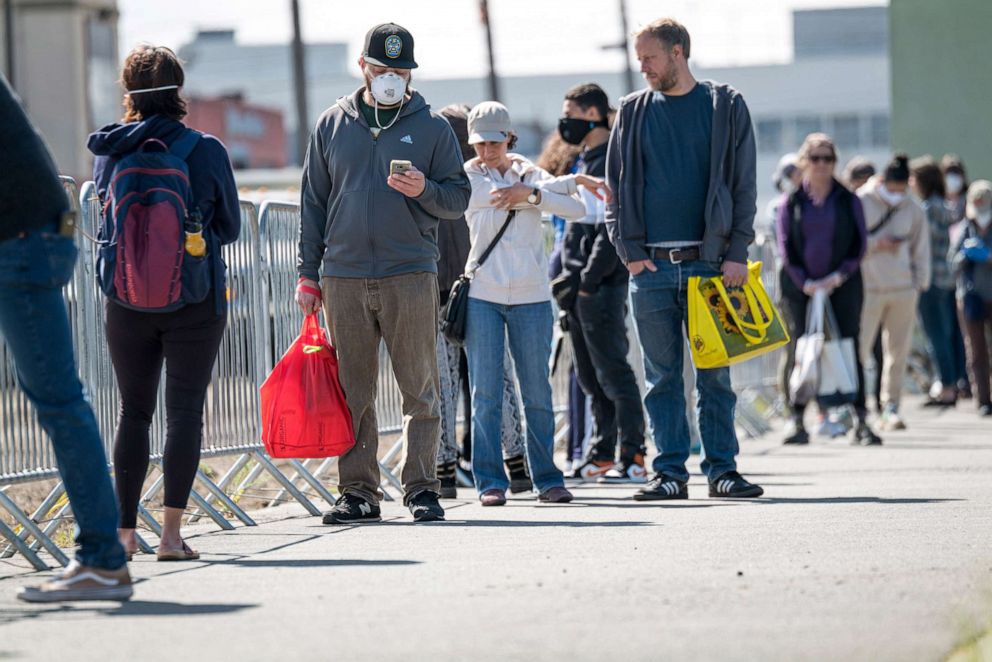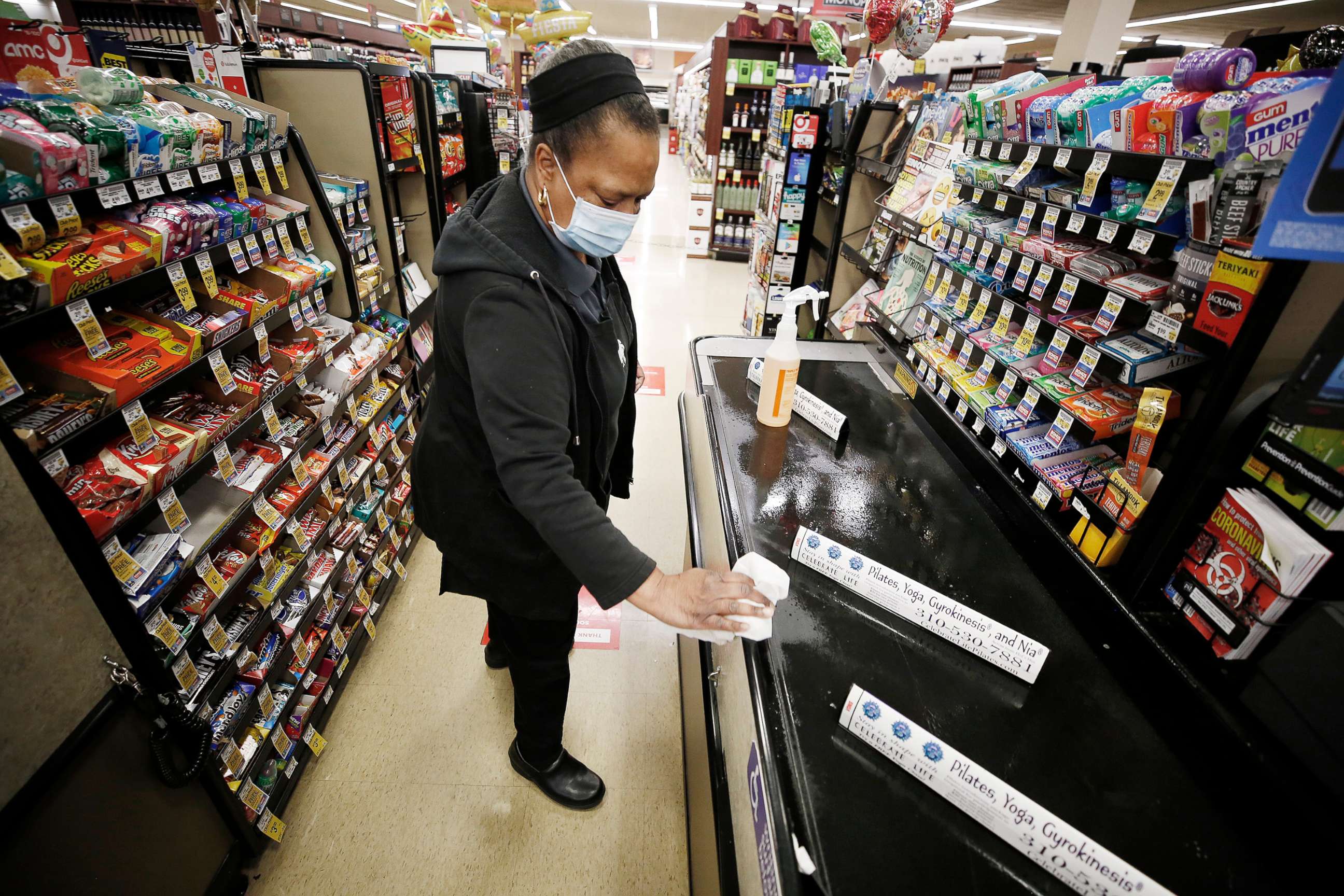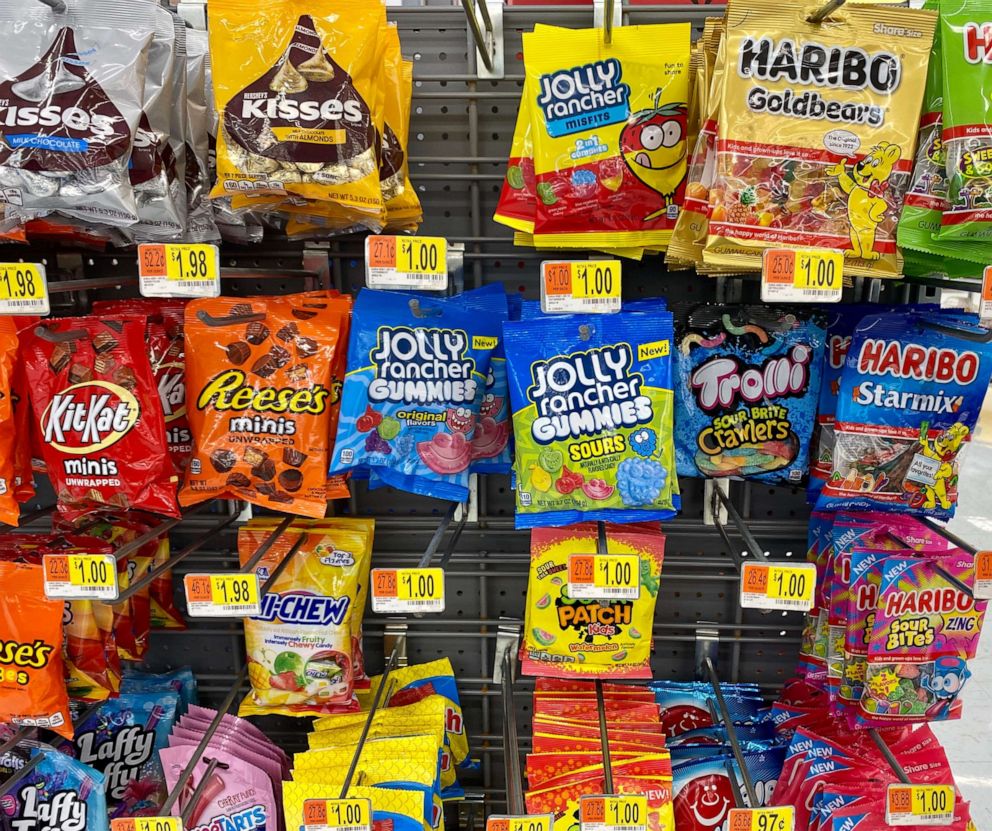Berkeley set to become 1st US city to ban junk food in grocery store checkout aisles
It would require stores to remove high sodium and high sugar foods at checkout.
Many Americans can relate to the tempting, passing glances at the colorful assortment of confections while waiting in line at the grocery store. But one city in Northern California is making a move to help people resist the unhealthy urges at checkout in favor of healthier options.
The Berkeley City Council unanimously approved a Healthy Checkout Ordinance at its meeting on Tuesday that will be reviewed next month.
The recommendation, presented by council members Kate Harrison and Sophie Hahn who co-authored the ordinance, would require stores over 2,500-square feet to "sell more nutritious food and beverage options in their checkout areas."

"We're not saying you can't have these goods. We're just saying they're not going to be right at the eye level of your children when they walk into the store and you're waiting in that long line at check out," Harrison said, according to ABC News San Francisco station KGO.
The city is well known for its ties to the Slow Food movement -- a global nonprofit that seeks to create better food systems and help communities change the world through their relationship with clean, healthy foods. Shoppers would see the change at local stores like Safeway, CVS, Berkeley Bowl, Trader Joes and Whole Foods.
The ordinance would be adopted officially after its second reading at the City Council meeting on Oct. 13. It won’t go into effect until March 1 and enforcement won’t begin until Jan. 1, 2022.
"Today’s food landscape plays a large role in determining what people purchase and consume," the the ordinance stated. "Cheap, ready-to-eat foods high in salt, saturated fat, and added sugars dominate checkout aisles, where shoppers are more likely to make impulse purchases and where parents struggle with their children over demands to buy treats at the end of a shopping trip."
The city manager would determine specifics for adequate funding and staffing needs in order to implement and enforce the ordinance and sources of funding to support this program.
The ordinance laid out research and data surrounding excessive sugar and sodium intake and related disease disparities, including elevated risk of tooth decay, heart disease and Type 2 diabetes.

"The adverse health effects of added sugar consumption further entrench health disparities, burdening people of color more than white populations," the ordinance stated. "Currently, Type 2 diabetes is on the rise across the country; one in three children and one of two children of color will be diagnosed in their lifetime."
It also cited a 2019 report that found "73 percent of shoppers are concerned about the nutritional content of their food."
"The aim of placing food and beverages at checkout is to induce unplanned purchases; thus, unhealthy checkout options undermine consumers’ efforts to purchase healthier foods," according to the ordinance. "The placement of snacks near the register increases the likelihood that people purchase those foods. In addition, most of the candy, soda, and chips in checkout aisles are placed at eye-level and within reach of children, undermining parents’ efforts to feed their children well. Three-quarters of parents report that it is hard to shop at grocery stores because unhealthy food is so prevalent. Healthy checkout aisles provide all families more opportunities to say yes to their kids."

Berkeley has long been on the forefront of healthy living. It became the first city in the U.S. to pass a soda tax in 2014.




